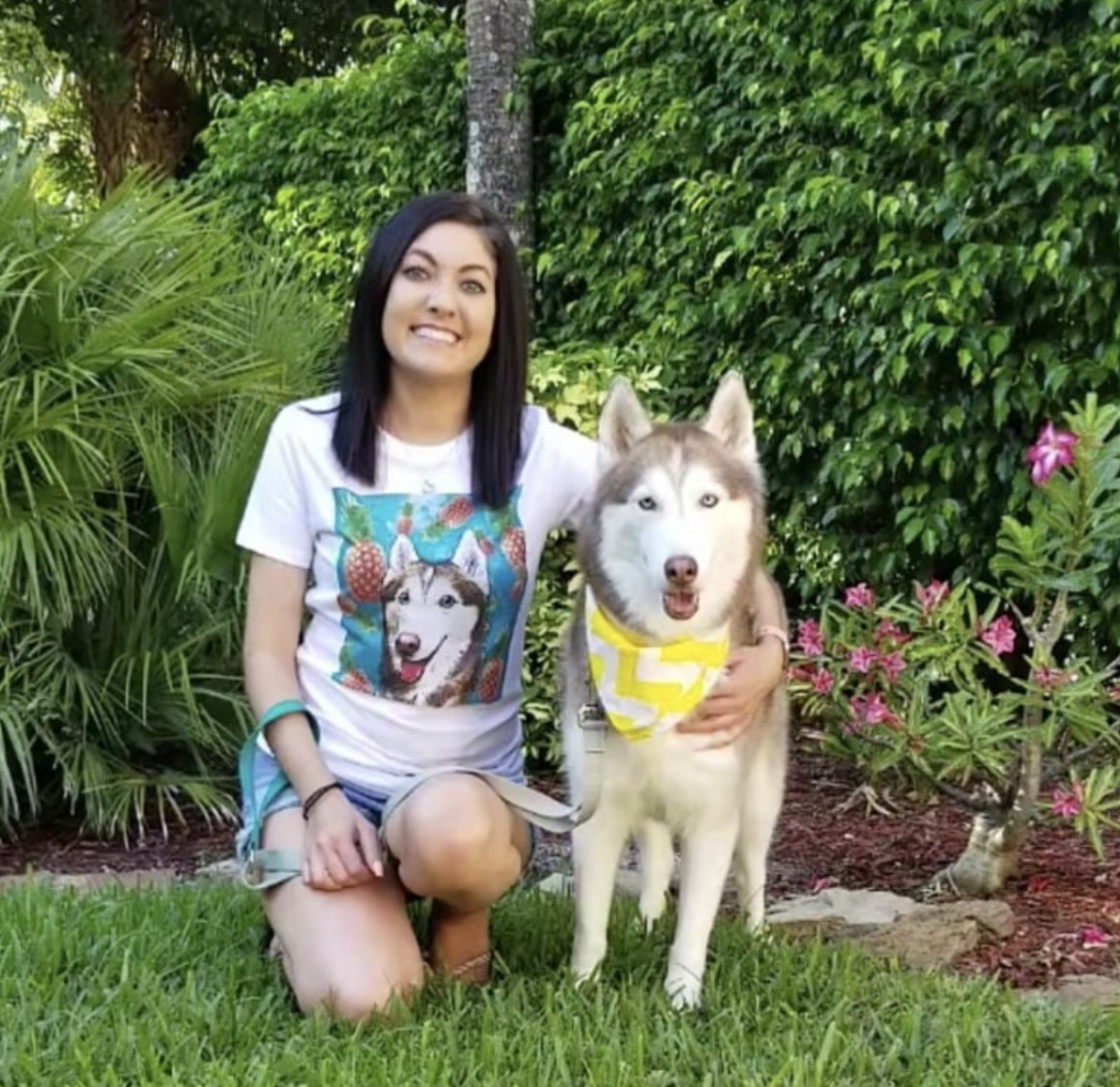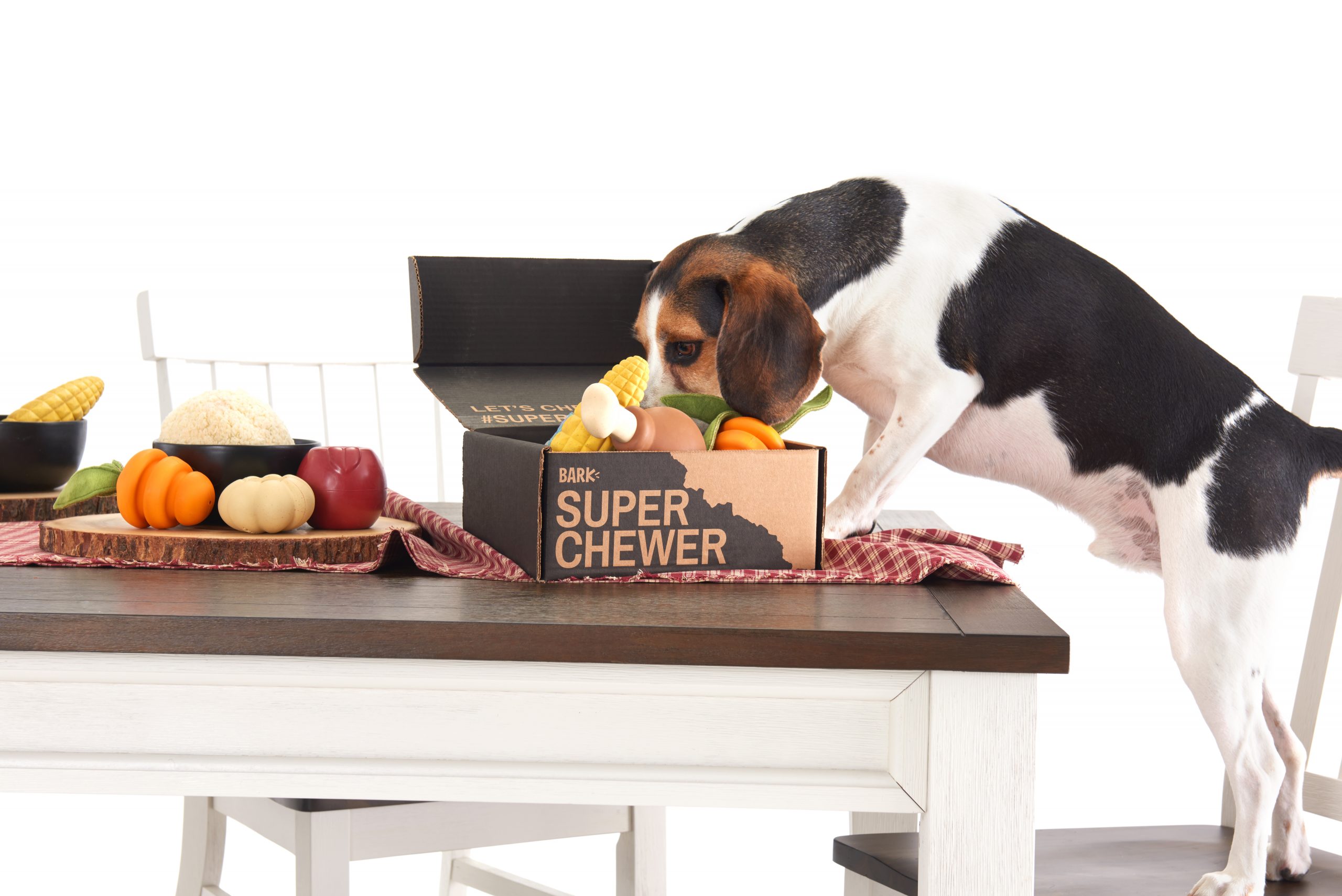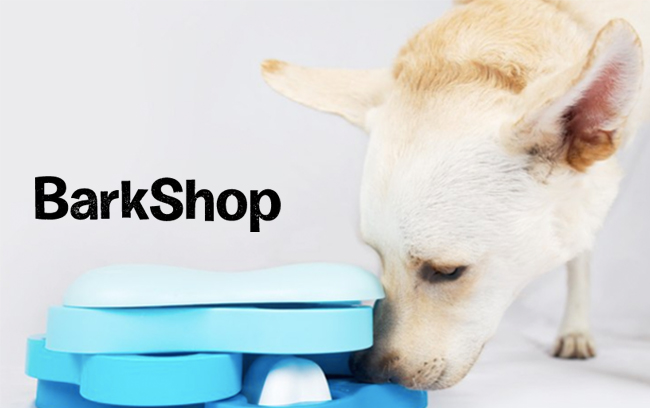Sweet, sweet puppy breath—you either absolutely love it, or whole-heartedly hate it. It’s like the cilantro of dog scents, and we may have genetics to blame! But why does puppy breath smell sweet in the first place? And for those who love it, is there a way to make it last longer (or to at least avoid full-force dog-fart breath later on)?
What Is Puppy Breath?
Unlike adult dog breath that often has the reputation of smelling like Oscar The Grouch’s butt (we assume), puppy breath usually smells delightfully sweet. Some love the smell of puppy breath so much that companies have created “puppy breath” scented candles and “puppy breath” perfume!
Regardless of your feelings toward the scent, sweet-smelling puppy breath is a sign of good health. If you’re noticing a funky or rancid smell from their little puffs of breath, it could signal an issue such as an impacted tooth—you’ll want to discuss any funk-breath with your vet.
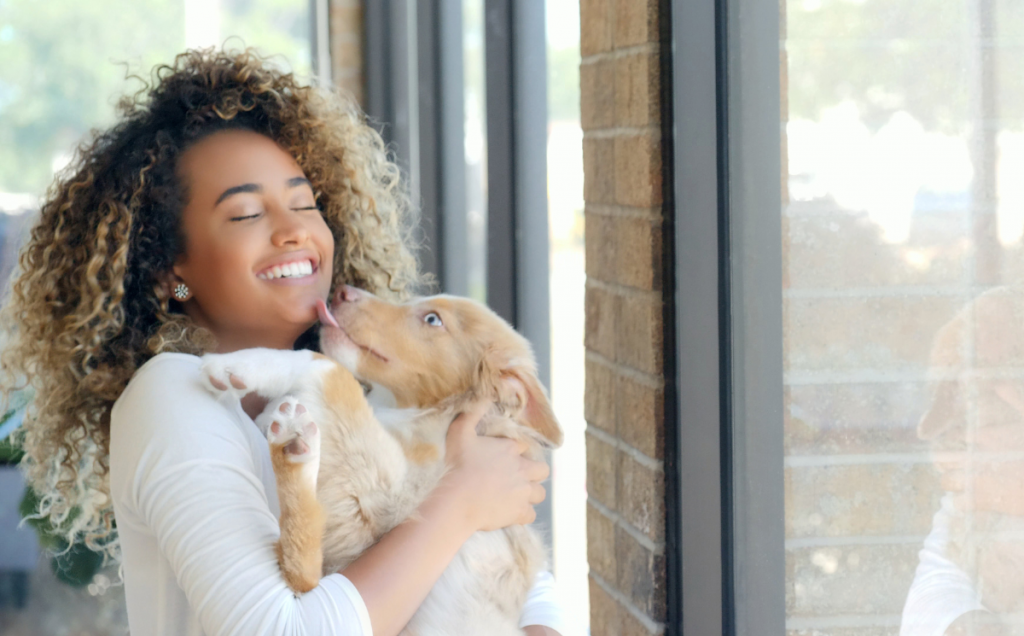

Why Does Puppy Breath Smell So Good?
Puppy breath must have been gifted to us by the dog gods, right? Well, not quite (as far as science knows, anyway). The mystery behind puppy breath hasn’t been nailed down 100% yet, but here are a few of the best running theories behind what creates that trademark scent:
- Mom’s Milk – Young puppies are still nursing from Mom rather than eating solid dog food, which doesn’t always smell awesome. The milk itself is sweet-smelling, which makes your pup’s breath smell that way too!
- A Clean Slate Of Oral Health – That all-too-familiar dumpster breath that older dogs often have is actually due to poor oral health. As food gets left behind, plaque and tartar build up and bad breath-causing bacteria flourishes, transforming your dog’s mouth into quite the funk-fest. This tends to get worse over time without a proper dental care routine. Puppies, however, start with a blank slate. Their mouth tends to be cleaner, healthier, and stank-free, especially before transitioning to solid food.
- Stomach Gas – Some vets suggest that digestive enzymes in your pup’s stomach break down into gas and then leak into your puppy’s still-developing esophagus, creating sweet breath. Sounds a bit odd, but hey, we’re no puppy-gas-ologists.
Related Article: Do You Need To Brush Your Puppy’s Teeth?
How Long Does Puppy Breath Last And Can You Make It Last Longer?
Puppy breath usually lasts until around 6 months of age, then starts to fade away. By 6 months, puppies have weened off their mom’s milk, begun to eat solid dog food, and have likely lost all or most of their fresh ‘n’ clean baby teeth. Enjoy it while it lasts (and then maybe buy yourself a puppy breath candle to reminisce)!
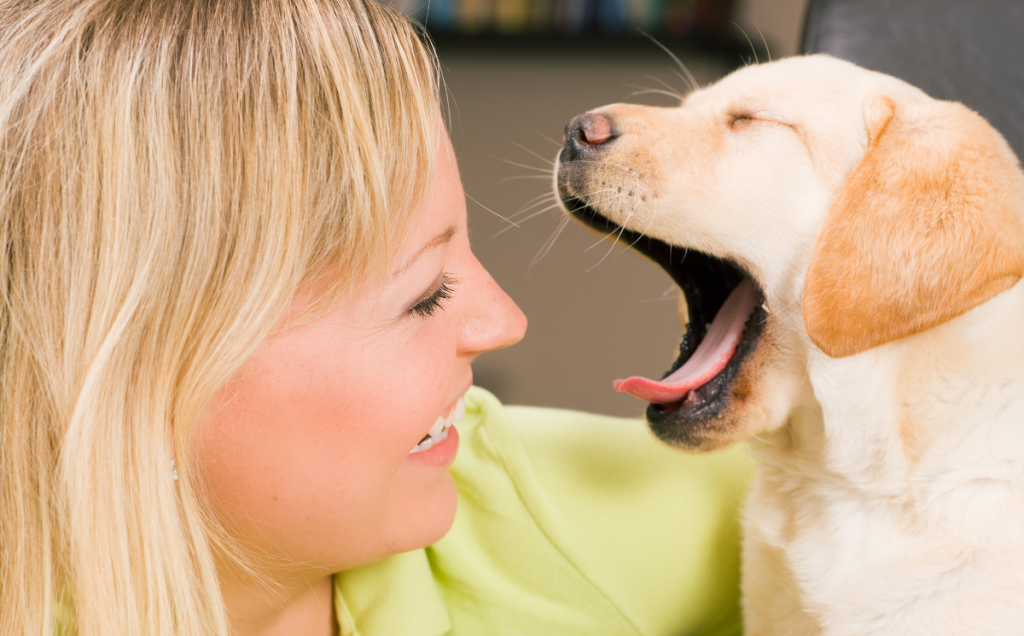

Once puppies are eating solid food, they’re also accumulating leftovers around the teeth. Plaque begins to build up, and bacteria make a cozy home in the nooks and crannies of your dog’s mouth. All of this sets the stage for early periodontal disease—including smelly breath—that will worsen over time without preventative care. The good news is you can keep your dog’s breath from getting funky, fishy, and foul as they get older by maintaining a dental care routine.
Need a suggestion? Try NEW Bright Durable for dogs! Extra-tough dental chews paired with tasty toothpaste—no brushing required.
| Not-So-Fun-Fact: A whopping 80% of dogs have periodontal disease by age 3. |
Keep Your Dog’s Breath Smelling Fresh Longer With These Tips:
- Schedule Routine Dental Exams – Oftentimes we don’t realize how bad our dog’s dental health really is. Your vet should be examining your dog’s teeth at least once a year, usually during their yearly wellness visit. They can help determine the extent of dental disease, and will advise you on at-home dental care and the necessity of a professional dental cleaning.
- Keep An Eye On Your Dog’s Teeth And Breath – Super smelly dog breath is actually never “normal,” which can be quite the surprise to many pup parents. It’s a sign of flourishing bacteria, plaque build-up, and possible infection. If you see yellow, brown, or black discoloration, it’s time to talk to your vet. Tartar (the darker gunk) is significantly harder than plaque and can only be removed during a professional dental cleaning. If plaque and tartar are left untreated, they will lead to more advanced stages of dental disease.
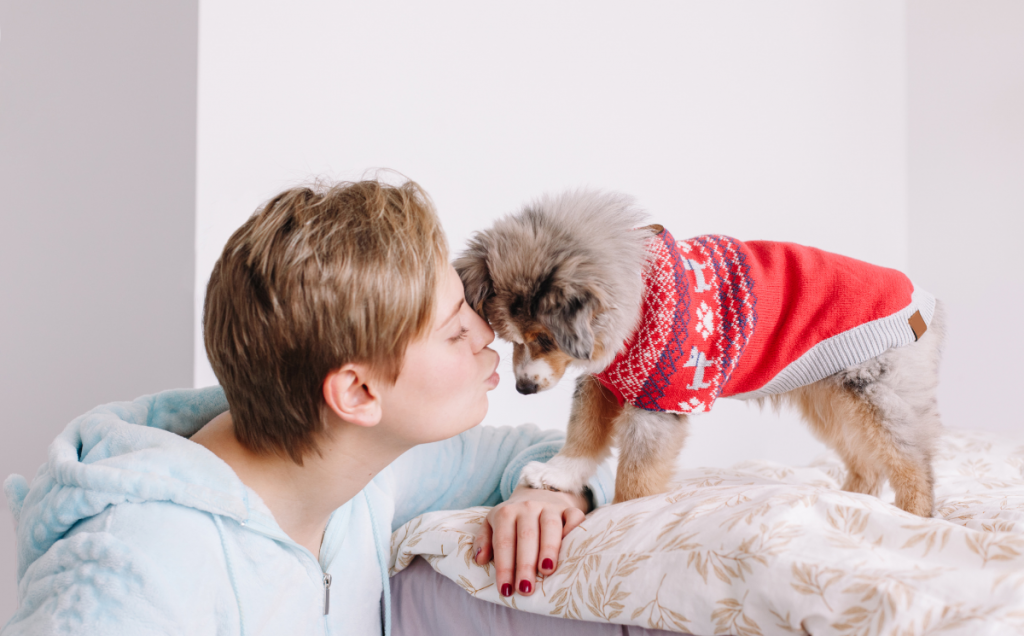

- Talk To Your Vet About A Dental Cleaning – If you’re noticing stinky breath or gunky buildup, ask your vet about a professional dental cleaning. Done safely under anesthesia, they’re the only way to remove tartar buildup, clean thoroughly below the gum line, and discover and treat any problems lurking below the surface.
- Brush Their Teeth – Dogs develop dental disease, tooth decay, and bone loss just like we do. Brushing their teeth with a dog-friendly toothpaste (human toothpaste is often toxic to dogs) is the absolute best way to help prevent dental disease. It’ll also keep your pup’s breath smelling like roses, and save you money in the long run.
- Use Dental Chews – Tough but flexible dental chews help prevent plaque buildup in dogs, and thus aid in keeping garbage breath at bay. Dog dental chews are most effective when paired with toothbrushing and an overall dental routine; you can even increase the dental chew cleaning power by combining it with a dog-friendly toothpaste!
- Provide Plenty Of Chew Toys – Toys designed to take a chomping can support dental health by scrubbing away food debris and plaque that lead to bad breath. Just be mindful of how hard these toys and chews really are. An easy trick is to try denting it with your fingernail—anything that won’t budge can potentially crack or break a tooth with enthusiastic chewing.
- Check Out Water Additives, Sprays, Gels, & Dental Wipes – Many of these products use enzymatic ingredients that help break down the plaque and bacteria sticking to your dog’s teeth. They can be a helpful addition to your dog’s overall health care routine, and some even have a minty scent to help boost fresh breath!

